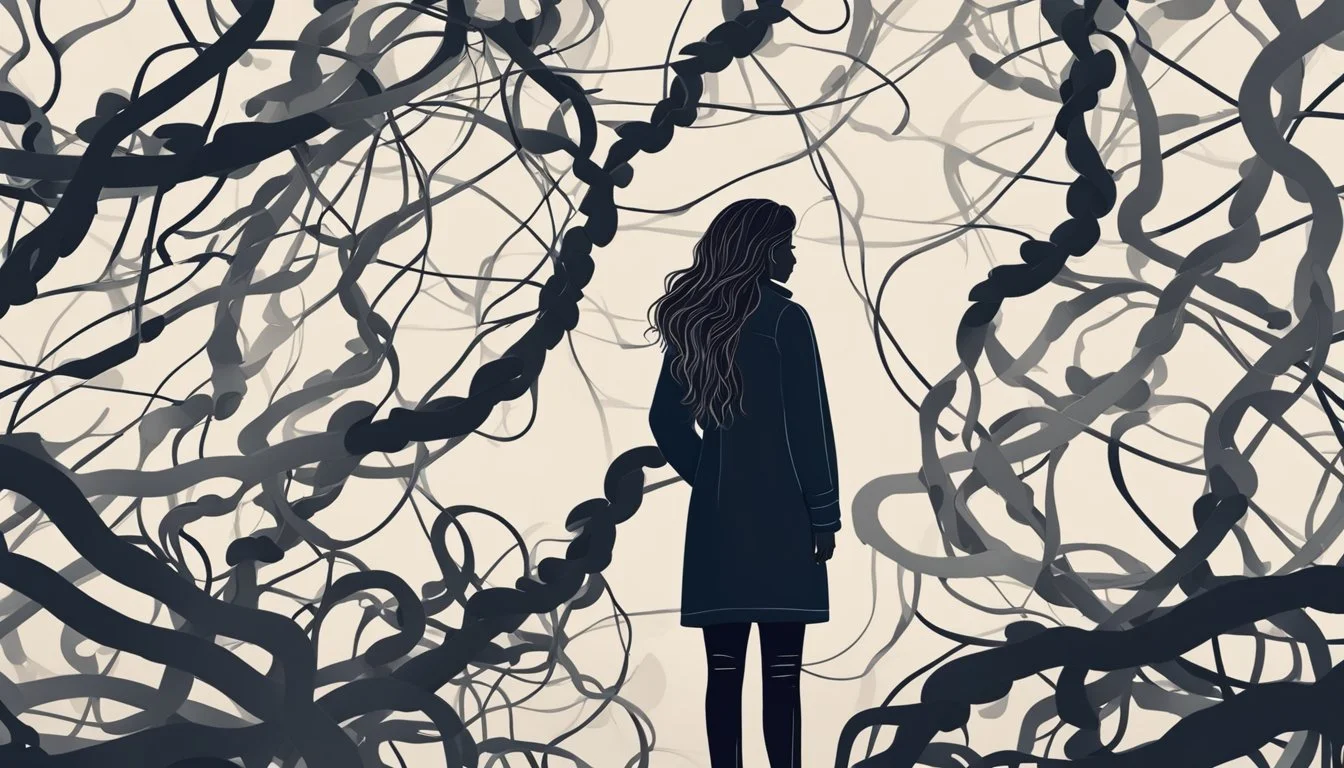Understanding Health Consequences of Toxic Relationships
Toxic relationships can take a severe toll on both mental and physical health. The constant stress, negativity, and emotional turmoil associated with these unhealthy dynamics impact various aspects of wellbeing. Research has shown that toxic relationships are linked to increased risks of depression, anxiety, sleep disturbances, and even physical health issues like weakened immune function.
The effects of toxic relationships often extend beyond immediate emotional distress. Individuals may experience a decline in self-esteem, difficulty concentrating, and changes in appetite or weight. These ongoing stressors can lead to chronic health problems if left unaddressed.
Recognizing the signs of a toxic relationship is crucial for protecting one's health and happiness. Persistent jealousy, lack of support, and feeling the need to constantly walk on eggshells are red flags that should not be ignored. Taking steps to address or leave an unhealthy relationship can lead to significant improvements in overall wellbeing and quality of life.
Understanding Toxic Relationships
Toxic relationships erode mental and physical well-being through harmful patterns of behavior. These dynamics can manifest in various forms, impacting individuals on multiple levels.
Characteristics of Toxic Relationships
Toxic relationships often involve control, manipulation, and criticism. Partners may exhibit jealousy, engage in lying, or use gaslighting tactics to undermine the other person's reality.
Signs include constant negativity, lack of support, and disrespect for boundaries. Emotional, physical, or financial abuse may occur.
Communication tends to be dysfunctional, with frequent arguments or passive-aggressive behaviors. One partner may consistently prioritize their needs over the other's.
Emotional and Psychological Effects
Toxic relationships can severely damage emotional well-being and mental health. Victims often experience low self-esteem, insecurity, and a diminished sense of self-worth.
Chronic stress and anxiety are common. Depression may develop as a result of ongoing emotional turmoil. Some individuals may develop PTSD, especially in cases of severe abuse.
Trust issues can arise, making it difficult to form healthy relationships in the future. Victims may struggle with decision-making and assertiveness.
Physical Health Consequences
The stress of toxic relationships can manifest physically. Individuals may experience sleep disturbances, changes in appetite, and fatigue.
Chronic stress elevates cortisol levels, potentially leading to weakened immune function and increased risk of illness. Headaches, digestive issues, and muscle tension are common.
Some may turn to unhealthy coping behaviors like substance abuse or overeating. In severe cases, physical abuse can result in injuries ranging from bruises to more serious trauma.
Recognizing Harmful Patterns
Toxic relationships often involve recurring negative behaviors that can be difficult to identify. These patterns erode trust, self-esteem, and emotional well-being over time.
The Cycle of Abuse
Abuse typically follows a predictable cycle. It starts with tension building, escalates to an incident, then moves to reconciliation and a calm period before repeating.
Red flags include jealousy, possessiveness, and control issues. The abuser may isolate their partner from friends and family. Victims often feel like they're "walking on eggshells" to avoid triggering outbursts.
Dishonesty and manipulation are common tactics used to maintain power. The abuser may alternate between loving behavior and cruel treatment, keeping the victim off-balance.
Violence or threats of violence may occur, though not in all abusive relationships. Emotional and verbal abuse can be just as damaging as physical abuse.
Emotional and Social Isolation
Toxic partners often attempt to cut off their victim's support systems. They may discourage contact with friends and family or monitor communications.
This isolation makes the victim more dependent on the abuser. It becomes harder to recognize unhealthy dynamics or seek help.
The abuser may foster resentment toward others in the victim's life. They might claim others are a bad influence or don't understand the relationship.
Lack of outside perspectives can lead to self-doubt. Victims may struggle to trust their own judgment about the relationship's problems.
Isolation can also impact work and hobbies. The toxic partner may interfere with the victim's career or discourage independent interests.
Effects on Relationships and Social Life
Toxic relationships can severely disrupt a person's social connections and support networks. The negative impacts extend far beyond the primary relationship, affecting friendships, family ties, and even professional interactions.
Impact on Friendships and Family Ties
Individuals in toxic relationships often become isolated from friends and family. They may withdraw from social activities or be discouraged from maintaining outside connections by their partner.
This isolation can weaken support networks that are crucial for emotional wellbeing. Friends and family members may notice changes in behavior or personality, leading to strained interactions.
Some people may avoid sharing their relationship struggles out of shame or fear of judgment. This reluctance to open up can create distance in formerly close relationships.
Over time, toxic relationships can damage trust in all relationships. The negative patterns learned may carry over, making it difficult to form and maintain healthy connections with others.
Professional Relationships at Stake
Toxic relationships can spill over into the workplace, affecting job performance and professional relationships. Stress and emotional turmoil may lead to decreased productivity, mood swings, or difficulty concentrating.
Coworkers may notice changes in demeanor or work quality. This can strain team dynamics and potentially harm career prospects. In some cases, a toxic partner may interfere with work directly through excessive calls, texts, or unexpected visits.
Networking opportunities may be missed if social events are avoided. Career growth can stagnate if a toxic partner discourages pursuing new opportunities or advancement.
Building and maintaining professional relationships becomes challenging when personal life is in constant turmoil. The energy needed to navigate workplace interactions may be depleted by relationship stress.
Healing and Recovery Process
Recovering from a toxic relationship requires time, effort, and support. The journey involves seeking professional guidance, prioritizing self-care, and rebuilding healthy connections.
Seeking Professional Help
A therapist or counselor can provide invaluable support during the healing process. These mental health professionals offer tools to process emotions, overcome trauma, and develop coping strategies. Therapy sessions create a safe space to explore feelings without judgment.
Many find group counseling beneficial. Sharing experiences with others who have faced similar challenges can reduce feelings of isolation. Support groups offer practical advice and emotional connection.
Professional help may also address any underlying mental health issues exacerbated by the toxic relationship. Addressing these concerns is crucial for long-term well-being and future relationship success.
Self-Care and Mental Health Management
Self-care plays a vital role in recovery. Engaging in activities that promote physical and emotional well-being helps rebuild self-esteem and confidence.
Regular exercise releases endorphins, improving mood and reducing stress. Yoga and meditation can calm the mind and promote inner peace. Pursuing hobbies and interests neglected during the toxic relationship reignites passion and joy.
Practicing self-compassion is essential. Treat yourself with kindness and understanding. Recognize that healing takes time and setbacks are normal.
Prioritize sleep, nutrition, and relaxation. These fundamental aspects of health form the foundation for emotional resilience and overall well-being.
Building Resilience and Positive Relationships
Cultivating resilience helps prevent future toxic relationships. Learn to recognize red flags and trust your instincts. Set and maintain healthy boundaries in all relationships.
Focus on developing a strong support network. Surround yourself with positive, supportive people who respect your boundaries and value your well-being.
Practice effective communication skills. Express needs and feelings clearly and assertively. Listen actively to others and foster mutual understanding.
Engage in activities that boost self-esteem and independence. Pursue personal goals and celebrate achievements, no matter how small.
Remember, healing is not linear. Be patient with yourself as you navigate this process. Each step forward, no matter how small, is progress toward a healthier, happier future.
Moving Forward After a Toxic Relationship
Leaving a toxic relationship is a crucial step towards reclaiming one's well-being and happiness. The journey forward involves healing, rebuilding self-esteem, and creating a foundation for healthier future relationships.
The Importance of Acceptance and Forgiveness
Acceptance is key to moving past a toxic relationship. Acknowledging the reality of what happened without minimizing or denying it allows for true healing to begin.
Forgiveness, both of oneself and the former partner, is a powerful tool for letting go. It doesn't mean condoning harmful behavior, but rather freeing oneself from resentment.
Self-compassion plays a vital role in this process. Treating oneself with kindness and understanding helps rebuild self-esteem damaged by the toxic dynamics.
Seeking professional help can provide valuable support and guidance during this phase. Therapists can offer strategies to process emotions and develop coping mechanisms.
Establishing Financial and Emotional Independence
Financial independence is crucial after leaving a toxic relationship. Creating a budget, securing employment, and building savings provide a sense of security and control.
Opening a separate bank account and reviewing shared financial obligations are important steps. Seeking legal advice may be necessary to untangle complex financial situations.
Emotional independence involves rediscovering personal interests and values. Engaging in hobbies, spending time with supportive friends, and practicing self-care contribute to this process.
Setting and enforcing boundaries is essential. This includes limiting contact with the former partner and being clear about personal needs and limits in all relationships.
Creating a Plan for Future Relationships
Reflecting on past experiences helps identify red flags and personal growth areas. This self-awareness is crucial for avoiding similar patterns in future relationships.
Developing a clear understanding of what constitutes a healthy relationship is vital. This includes mutual respect, trust, open communication, and shared goals.
Taking time to heal before entering a new relationship allows for personal growth and readiness. There's no set timeline for this process; it varies for each individual.
Learning to trust again is a gradual process. Start by trusting in small ways and allow it to build naturally over time. Be patient with yourself and potential partners.
Setting healthy boundaries from the beginning of new relationships helps maintain personal well-being. Communicate needs clearly and respectfully, and expect the same in return.
Addressing and Preventing Further Abuse
Recognizing and addressing abusive behavior is crucial for protecting oneself and seeking help. Taking action involves understanding legal options and accessing support resources.
Recognizing the Signs and Taking Action
Identifying signs of abuse is the first step toward addressing toxic relationships. These may include controlling behavior, emotional manipulation, and physical violence. Trust your instincts if something feels wrong.
Document incidents of abuse, including dates, times, and details. This information can be valuable for legal purposes or when seeking help.
Reach out to trusted friends, family members, or professionals for support. The National Domestic Violence Hotline offers confidential assistance 24/7.
Create a safety plan if you feel in danger. This may involve packing an emergency bag and identifying safe places to go.
Seek professional counseling to process emotions and rebuild self-esteem. Therapy can provide tools for healing and setting healthy boundaries.
Legal Considerations and Resources
Understanding your legal rights is essential when addressing abuse. Consult with a lawyer specializing in domestic violence cases to explore options.
Restraining orders or orders of protection can provide legal safeguards against abusive individuals. Local courts can guide you through the process of obtaining these.
Many communities offer free legal aid services for victims of domestic violence. These organizations can help navigate complex legal procedures.
Document all communication with the abusive person. Save texts, emails, and voicemails as potential evidence.
Consider pressing charges if physical abuse has occurred. Law enforcement can provide immediate assistance and initiate legal proceedings.
Explore victim compensation programs in your area. These may offer financial support for medical bills, counseling, or relocation expenses.






